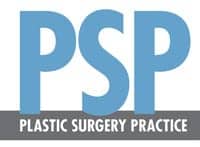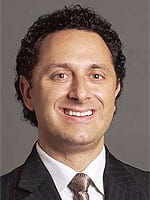Plastic Surgery Practice June 2014
By Denise Mann, Editor
When I was in my mid-20s, I had a roommate from London. Let’s call her Julie. She was actually extremely smart, maybe even brilliant, but even if she wasn’t, her Downton Abbey accent made her sound like a genius. Everything sounds better and smarter with a British accent. Julie was also highly opinionated and could be a tad judgmental.
A third roommate of ours had brought home a new boyfriend. Let’s call him Louis. He was much older and not quite so polished. Julie promptly asked him what he did for a living. “I’m a producer,” he replied with pride.
With that, Julie turned on her heels and left the living room, muttering, “A producer? Everyone produces something. That is meaningless.”
This anecdote may seem tangential, but I feel exactly the same way about the adjective “renowned.” Every press release I get refers to the cosmetic doctor or center as “renowned”—sometimes even world- or internationally renowned.
Here is my unsolicited advice: Everyone is renowned for something, rendering it both not impressive and meaningless. There is no science or standards behind being renowned. Anyone can call themselves renowned for anything. It’s a term that is equally as vague and ubiquitous as “producer.” Case in point: A simple Google search for “renowned plastic surgeon” yields more than 3 million hits.
Other superlatives and catch phrases on my hit list include “illustrious,” “internationally known,” “revered,” and “widely sought-after.”
This, of course, begs the question: What adjectives or phrases are OK to use in self-promotional press releases or advertorials? How about just sticking to the facts? Where did you get your MD? Where did you do your fellowship? What associations are you a member of? Do you hold any offices? What awards have you won? Are you board certified? Double board certified? By which boards?
Instead of using useless superlatives, list meaningful accomplishments. I can’t speak for all other editors, but I can say that, at best, we delete these adjectives when running your news stories, and, at worst, we laugh and hit “trash.”
It likely stands to reason that these words are used more frequently when peddling fake news or news stories such as unveiling a new website or the advent of a new laser, as opposed to real news such as the publication of a study in a peer-reviewed journal or election to a high-ranking office in one of the major aesthetic societies. Chances are, if it is real news, you won’t need to pad it with meaningless adjectives. This way, you will really be renowned and respected for your true accomplishments and accolades.
Original citation for this article: Mann, D. Renouncing renowned. Plastic Surgery Practice. 2014; June: 6.





